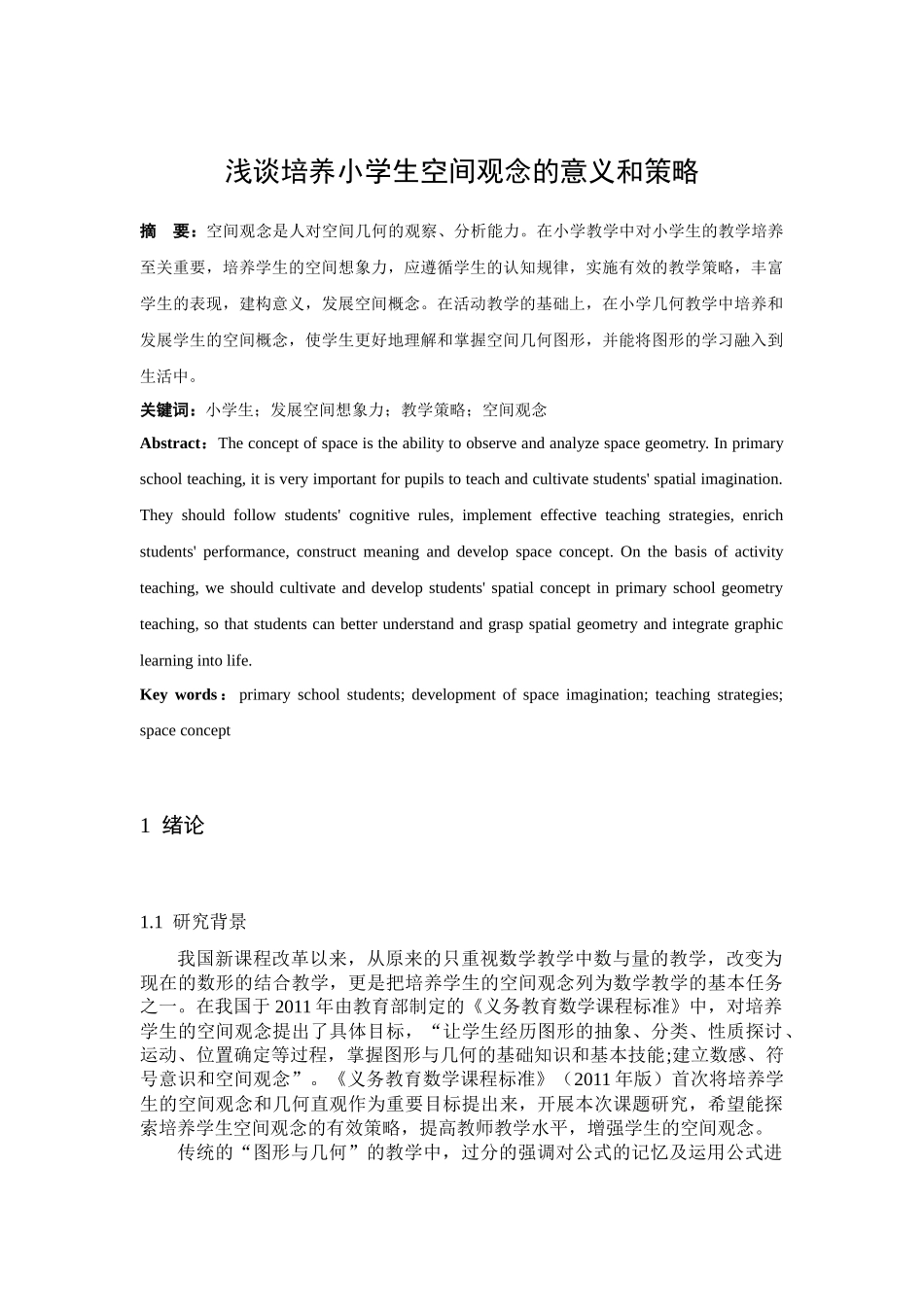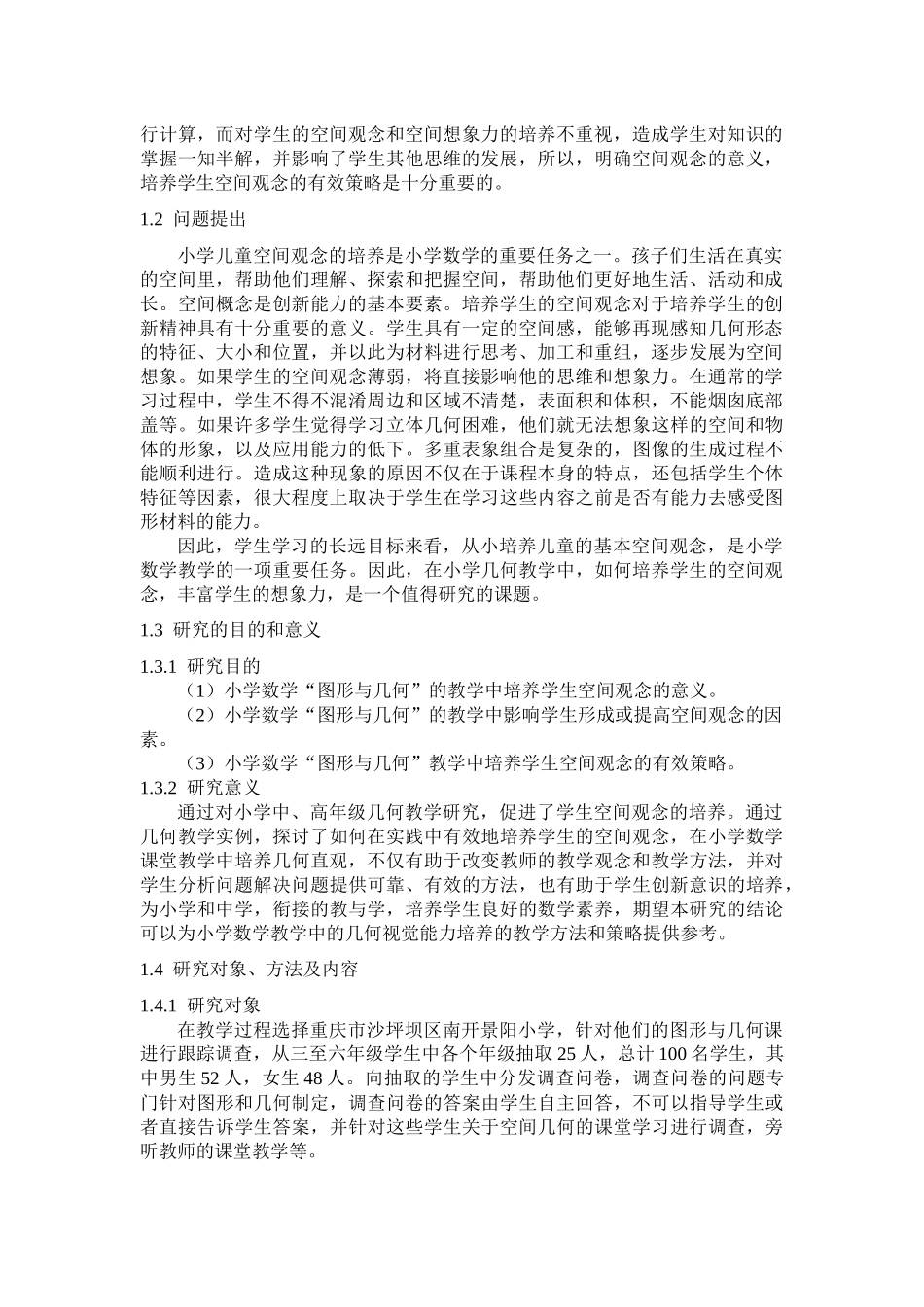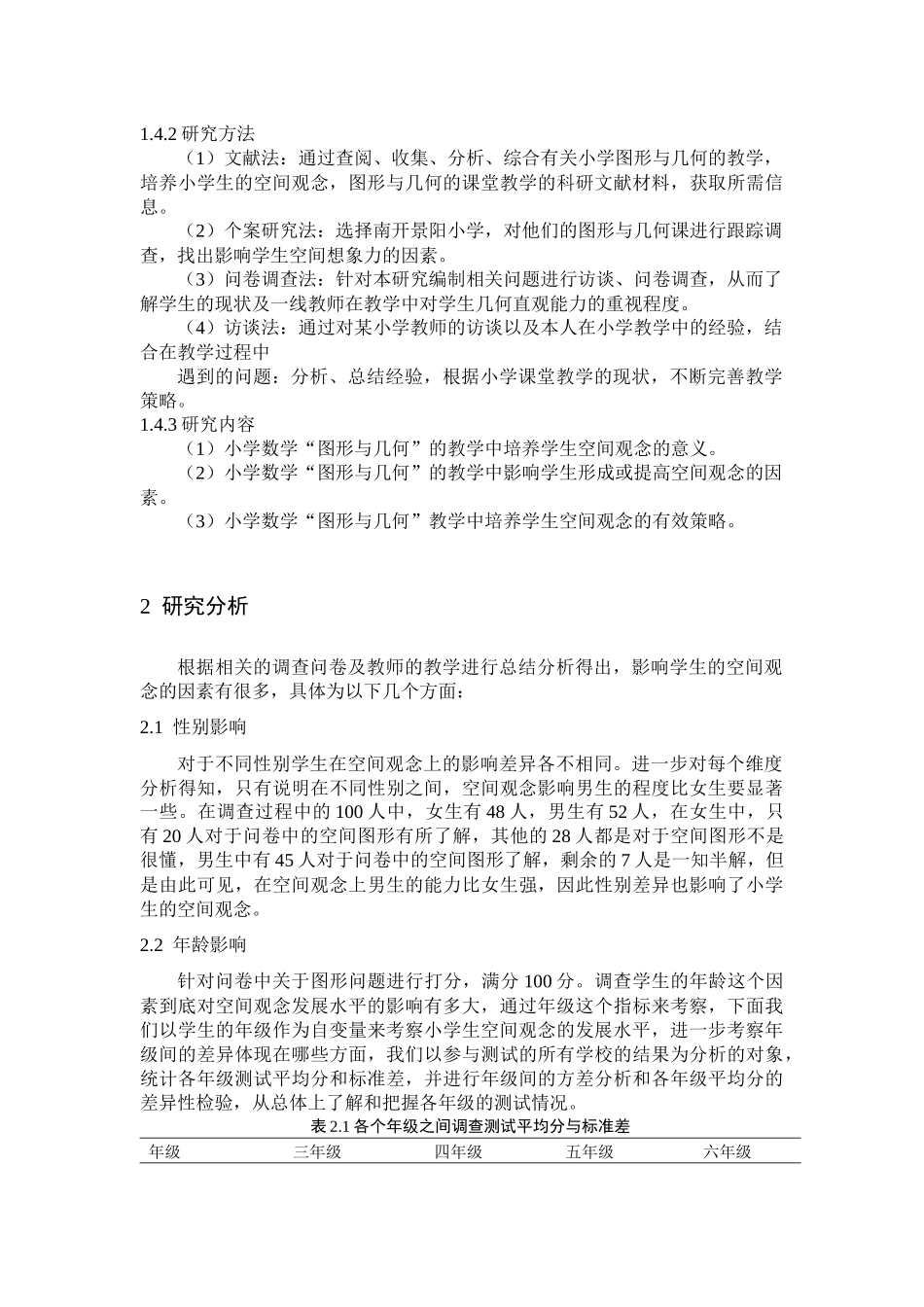浅谈培养小学生空间观念的意义和策略摘 要:空间观念是人对空间几何的观察、分析能力。在小学教学中对小学生的教学培养至关重要,培养学生的空间想象力,应遵循学生的认知规律,实施有效的教学策略,丰富学生的表现,建构意义,发展空间概念。在活动教学的基础上,在小学几何教学中培养和发展学生的空间概念,使学生更好地理解和掌握空间几何图形,并能将图形的学习融入到生活中。关键词:小学生;发展空间想象力;教学策略;空间观念Abstract:The concept of space is the ability to observe and analyze space geometry. In primary school teaching, it is very important for pupils to teach and cultivate students' spatial imagination. They should follow students' cognitive rules, implement effective teaching strategies, enrich students' performance, construct meaning and develop space concept. On the basis of activity teaching, we should cultivate and develop students' spatial concept in primary school geometry teaching, so that students can better understand and grasp spatial geometry and integrate graphic learning into life.Key words : primary school students; development of space imagination; teaching strategies; space concept1 绪论1.1 研究背景我国新课程改革以来,从原来的只重视数学教学中数与量的教学,改变为现在的数形的结合教学,更是把培养学生的空间观念列为数学教学的基本任务之一。在我国于 2011 年由教育部制定的《义务教育数学课程标准》中,对培养学生的空间观念提出了具体目标,“让学生经历图形的抽象、分类、性质探讨、运动、位置确定等过程,掌握图形与几何的基础知识和基本技能;建立数感、符号意识和空间观念”。《义务教育数学课程标准》(2011 年版)首次将培养学生的空间观念和几何直观作为重要目标提出来,开展本次课题研究,希望能探索培养学生空间观念的有效策略,提高教师教学水平,增强学生的空间观念。传统的“图形与几何”的教学中,过分的强调对公式的记忆及运用公式进行计算,而对学生的空间观念和空间想象力的培养不重视,造成学生对知识的掌握一知半解,并影响了学生其他思维的发展,所以,明确空间观念的意义,培养学生空间观念的有效策...












